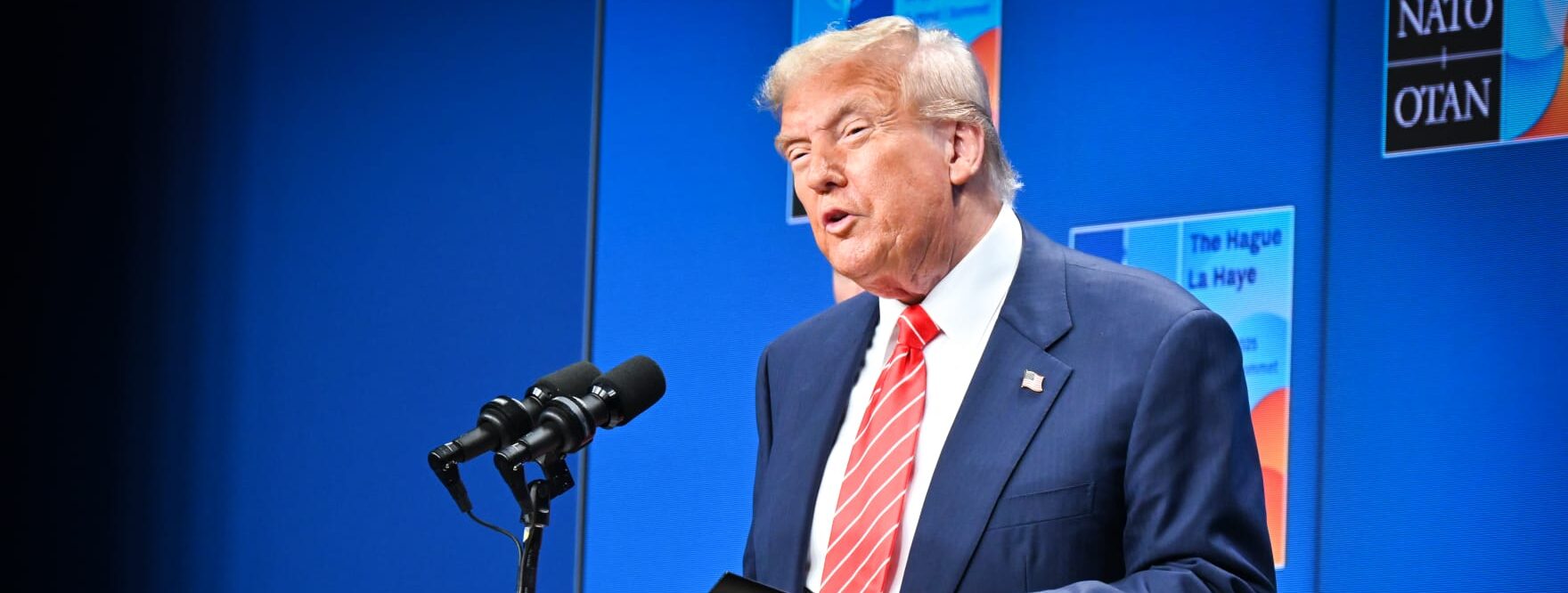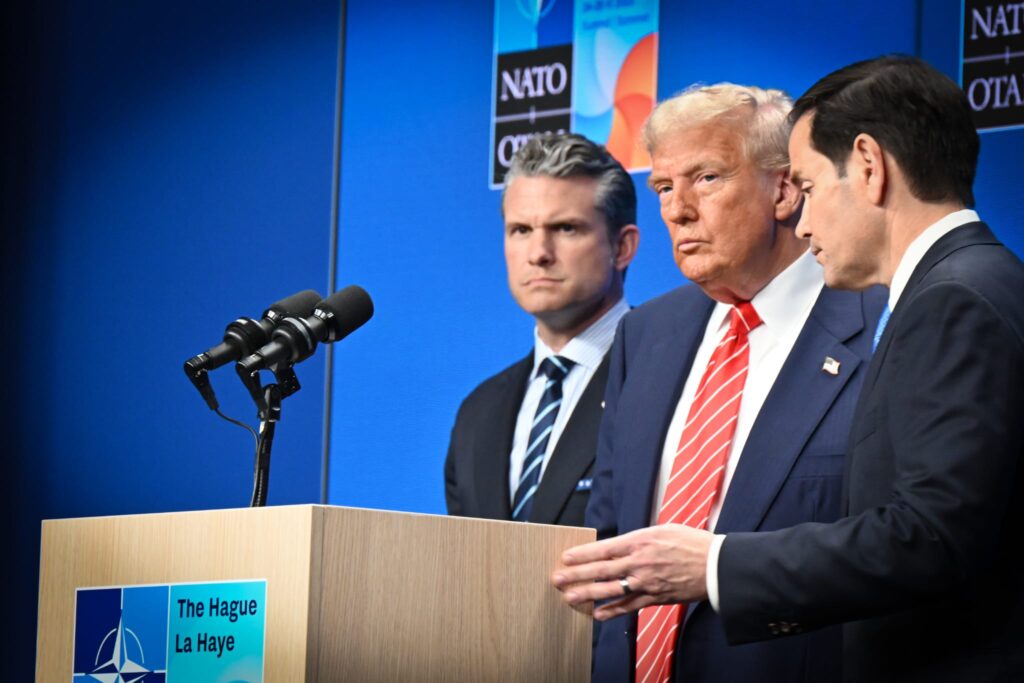
The United States dramatically increased its military presence in the Caribbean this August and September, with Venezuela as its primary target. This buildup represents the most significant U.S. military operation in the region in decades and marks a clear shift from diplomatic to military means in the conflict with Nicolás Maduro's regime.
Deadly escalation on September 2
On Sept. 2, 2025, US forces carried out their first direct military attack against an alleged Venezuelan drug boat, killing 11 people. President Trump stated that the victims were members of the Venezuelan Tren de Aragua, which had previously been classified as a terrorist organization. This operation represents an unprecedented escalation in the U.S. crackdown on drug trafficking organizations in Latin America.
The attack took place against the backdrop of a substantial military buildup. More than 4,500 Marines and sailors were sent to the southern Caribbean via eight warships and a nuclear submarine. This fleet includes advanced Aegis-guided missile destroyers, amphibious assault ships, and a nuclear attack submarine - military equipment far beyond standard anti-drug operations.
Legal instruments from 1798
Earlier this year, the Trump administration invoked for the first time since World War II the Alien Enemies Act of 1798, a war time law originally designed for conflicts between nations. This law is now being used to deport Venezuelans en masse, including to El Salvador, where they were detained in the maximum-security CECOT prison.
The use of this historical instrument signals that Washington no longer views the situation as an immigration or drug problem, but as a form of warfare. This legal basis creates room for military action that under normal circumstances would be problematic under international law.
Terrorism designations as a strategy
In February 2025, Tren de Aragua and the Sinaloa Cartel, among others, were officially designated Foreign Terrorist Organizations. In addition, Washington sanctioned the Cartel de los Soles, allegedly led by Maduro. These designations are more than symbolic ghosts - they create legal bases for military intervention.
The terrorism designations mean that any interaction with these organizations can be labeled as supporting terrorism. For Venezuela, where America says the lines between government and criminal organizations are blurring, this opens the door to expanded military operations.
Chinese countermovement
While America is increasing military pressure, China has strengthened its economic position in Venezuela. In 2023, the two countries elevated their bilateral relations to an "all-weather strategic partnership." Maduro and Xi held a bilateral meeting in Moscow, where they exchanged praise and promises of cooperation. The governments of both countries reported that more than 600 bilateral agreements are planned for 2025.
Beijing's strategy has evolved from large financial loans to Special Economic Zones. This approach allows China to maintain economic influence independent of Venezuela's political situation while providing alternatives to U.S. economic pressure. It is a form of economic diplomacy that seeks to neutralize military pressure without direct confrontation.
Oil diplomacy in flux
US sanctions policy shows conflicting signals. In July 2025, the US granted a limited license to Chevron to resume oil production in Venezuela, under strict conditions with no revenues flowing to the Maduro government. This decision came after Chevron was forced to wind down operations in May 2025, resulting in a drop in Venezuela's oil exports by nearly 20% to 700,000 barrels per day. The country, which has been struggling for years with hyperinflation has one of the largest oil reserves in the world. As recently as 2008, average oil production was 2.3 million barrels per day.
This oil diplomacy illustrates the complexity of the U.S. approach: Venezuela is treated as a hostile state, but Washington is simultaneously trying to maintain economic levers. It is a delicate balancing act where energy interests and geopolitical objectives sometimes conflict.
F-35s for anti-drug operations
The most recent escalation came with the relocation of 10 F-35 fighter jets to Puerto Rico specifically for operations against drug organizations. These advanced stealth fighters represent a new phase in the militarization of anti-drug operations. Where previously coast guard ships and DEA agents were used, military assets designed for conflicts between major powers are now taking the lead.
Military resources deployed
Warships:
- USS Gravely (DDG-107) - Arleigh Burke-class destroyer with Aegis missile defense and Tomahawk cruise missiles
- USS Jason Dunham (DDG-109) - Arleigh Burke-class destroyer with Aegis missile defense and Tomahawk cruise missiles
- USS Sampson (DDG-102) - Arleigh Burke-class destroyer with Aegis missile defense and Tomahawk cruise missiles
- USS Lake Erie (CG-70) - Ticonderoga-class cruiser with advanced Aegis command center
- USS Iwo Jima (LHD-7) - Wasp-class amphibious assault ship for landing Marines and helicopter operations
- USS San Antonio (LPD-17) - San Antonio-class amphibious transport ship for transporting and landing troops
- USS Fort Lauderdale (LPD-28) - San Antonio-class amphibious transport ship for transporting and landing troops
- USS Minneapolis-St. Paul (LCS-21) - Freedom-class littoral combat ship for operations in coastal waters
- USS Newport News (SSN-750) - Los Angeles-class submarine for undersea warfare and surveillance
Air Force:
- 10x F-35 Joint Strike Fighter - 5th-generation stealth fighter aircraft for air superiority and precision strikes
Possible targets within the country
Defense Secretary Pete Hegseth warned that the U.S. will maintain assets in the Caribbean and will continue to operate against "designated narco-terrorists." These statements suggest that the September military operations are part of a broader campaign.
According to sources, President Trump is considering multiple options for military strikes against drug cartels in Venezuela, including possible targets within the country itself as part of a broader strategy to weaken leader Nicolás Maduro.
Frustrations are running high among U.S. Democrats over what they see as lack of transparency from the White House about military activities. Top Democrats said last week they were kept in the dark ahead of the operation, which the administration says is the beginning of a broader military campaign. Officials pulled the plug on the bipartisan briefing Friday after participants had already arrived. The session has been postponed to this week.
Similar tensions arose earlier this year after Trump's attack against Iran. In June, top Trump officials postponed a briefing with lawmakers following the U.S. attack on Iranian nuclear facilities. Senate Minority Leader Chuck Schumer then accused the Trump administration of not adequately sharing information about the Iran operation with lawmakers.
Venezuelan military response
Maduro has responded by mobilizing 4.5 million militiamen and warning of "armed struggle" if Venezuela is attacked. The International Institute for Strategic Studies (IISS) estimates the actual size of Venezuela's armed forces and militias to be considerably lower: about 123,000 active soldiers and 220,000 militiamen.
Two Venezuelan F-16s did flyovers over U.S. Navy ships last week. The Pentagon described these actions as "highly provocative moves."
Regional diplomacy under pressure
Secretary of State Marco Rubio undertook a diplomatic trip to Jamaica, Guyana and Suriname in March 2025 with two objectives: remove barriers to U.S. investment in Caribbean energy and reduce crime in the region. The U.S. reintroduced a Caribbean Basin Security Initiative, with $88 million annually through 2029.
This funding addresses security concerns in a region where nine of the 10 countries with the highest murder rates in Latin America and the Caribbean are located. It is an effort to retain regional allies as military tensions rise.
Implications for dutch territories
For the Netherlands, these developments have direct consequences. Aruba, Curaçao, Sint Maarten, Bonaire, Sint Eustatius, and Saba are in a region that is becoming increasingly militarized. Possible consequences include disrupted trade routes, increased migration flows, and general destabilization.
Economic impacts on tourism, trade, and energy supplies could be significant. There is also a risk that the Netherlands, as a European partner of the U.S., will be forced to make choices between Atlantic relations and regional stability.
Escalation pattern without exit
The current situation shows characteristics of a classic escalation ladder with no clear exit strategy. Both sides have maneuvered themselves into positions from which withdrawal is difficult. America has tied its credibility to fighting what it defines as terrorism, while Maduro bases its legitimacy on resistance to American pressure. In addition, Venezuela has militarily powerful allies such as China, Russia and Iran.
China has reiterated its support for Venezuela without directly threatening military countermeasures. Russia, which has historically provided military support to Caracas, has for now limited itself to diplomatic support. This restraint suggests that none of the major allies is seeking direct confrontation at this time, but it also leaves room for further escalation.
Militarization
The deployment of F-35s against drug organizations marks a fundamental shift in U.S. anti-drug strategy. Where traditionally these issues were addressed through law enforcement and development cooperation, military hardware originally designed for conventional interstate warfare is now being deployed.
This militarization has precedents in Colombia and Mexico, but the scale and intensity of current operations are unprecedented. The question is whether military means are effective against organizations that operate primarily as criminal networks rather than territorial entities.
Scenarios
It is difficult to estimate, partly because of the unpredictable actions of both Maduro and Trump. Based on current developments, three scenarios are likely:
- Limited military operations targeting specific targets without large-scale invasion
- A comprehensive air campaign targeting military and economic infrastructure
- A full-scale military intervention aimed at regime change
Just recently, America doubled the tip money that could lead to Maduro's arrest from $25 million to $50 million.
The current crisis in the Caribbean represents a significant shift in U.S. foreign policy toward military means. The combination of legal instruments, terrorism designations, and military deployment creates a framework for expanded operations against Venezuela.
For the Netherlands and other regional actors, this means a period of uncertainty in which long-term planning is complicated by unpredictable political and military developments. The coming months will be crucial in determining whether this crisis can be de-escalated or will continue to escalate.
